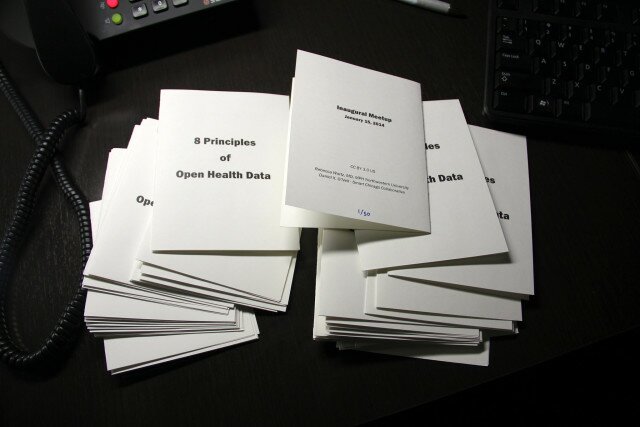 The death of RSS (Real Simple Syndication) has made the Web less fluid. This is not a good thing. The good thing is that American cities are uniquely positioned to make a dent in this trend.
The death of RSS (Real Simple Syndication) has made the Web less fluid. This is not a good thing. The good thing is that American cities are uniquely positioned to make a dent in this trend.
The popularity of this recent tweet by my colleague Harper Reed is a good indication of yearning for a generic subscription system for content updates:
i miss @google reader
— harper (@harper) February 8, 2015
Alongside the demise of RSS is the rise of proprietary timeline systems like Facebook and Twitter. This is a poor substitute because 1/ the systems are not universal and 2/ those systems are closed to aggregation, remixing, and analysis.
Cities can be at the center of part of a solution. 81% of people in the United States live in cities & surrounding suburbs, and this number continues to grow. This approaches some level of universality of experience, since interaction with businesses in these places make up a large percentage of the American experience. This includes every school, restaurant, coffee shop, parking spot, store. It covers nearly every review on Yelp, every check-in on Foursquare, any post of Facebook that relates to a business or organization located in a specific place.
Each municipality has rules, regulations, and processes governing the creation and maintenance of businesses. More importantly, each municipality has issued each business a unique ID (a “handle”) to which it can be referred, but never is. Whether it is a building permit, a liquor license, or a certificate of occupancy, there are amazingly detailed records on every business in every city of size.
These handles could be used as a trusted reference point for all other services. The overall repository of these numbers can then serve as a central, trusted repository for all other services to reference.
What if every review on Yelp, every Google Places page, every Facebook post that referenced a business, had this unique ID embedded in it in some way? And if all of these systems allowed for all of this disparate data to be aggregated into a complete view of the place? What if you could reference a location when making a service request? “The snow in front of Business 127 hasn’t been shoveled in three days”. Or, as a private business, you could lookup everything a city knows about a place. If it could be integrated with existing services like Open Table (“new tomatoes delivered to Restaurant 77. That means that the Fried Green Tomatoes special is on the menu”.) Unlimited.
It could be the trusted external source, not owned by any proprietary system. And it could be a platform upon which cities can start using their public data stores in more meaningful ways.
 We have a number of
We have a number of